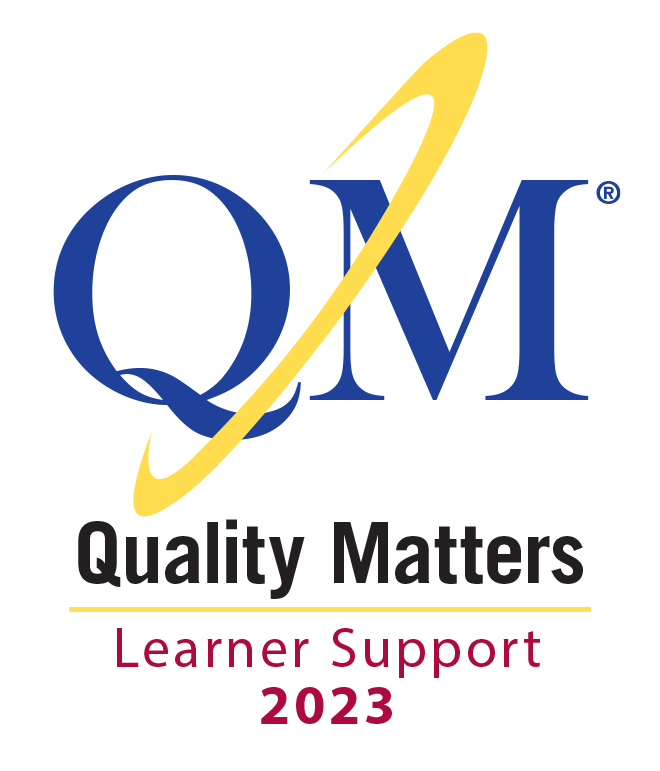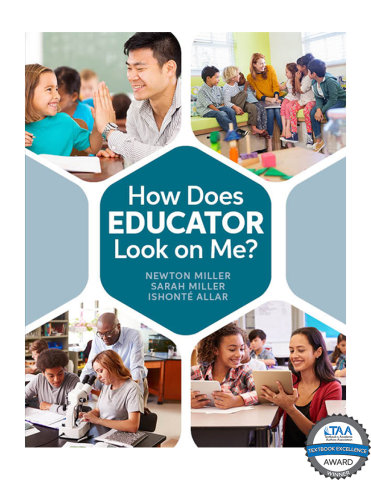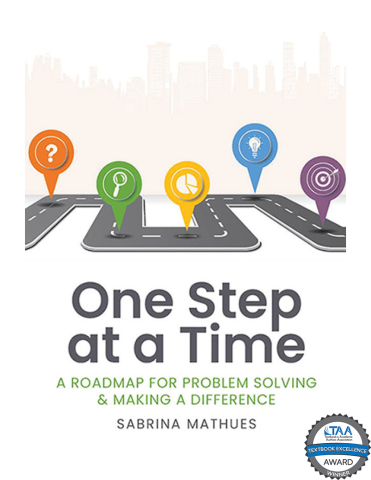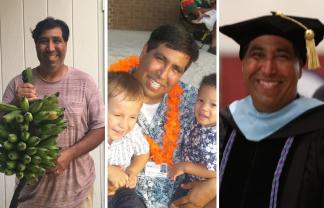Questions? Request Information
UAGC Award-Winning Curriculum
Degree Completion Journey
The Bachelor of Arts in Early Childhood Development with Differentiated Instruction degree from UAGC will teach you how to support learning and development for diverse early childhood learners. The early childhood development degree online covers developmental theories, assessment and intervention, as well as ethics and legal responsibilities. To personalize your education, your early childhood development degree online will also include a specialization.
To earn your Bachelor of Arts in Early Childhood Development with Differentiated Instruction degree at the University of Arizona Global Campus, you must complete 120 credits. You will need to complete 30 upper-division credits, of which 18 credits must be from the major program. A total of 30 credits must be completed at the University of Arizona Global Campus to meet the residency requirement. You may be able to transfer approved credits from community colleges, other previous college coursework, or other life experiences such as military service or job training toward your degree.
*In this program, 3 credits from the major may also satisfy General Education requirements.
This program is not designed to meet the state educational requirements for teacher licensure or certification in any state. Students seeking teacher licensure shall carefully research their state's requirements prior to enrollment and regularly review the requirements as they are subject to change. Requirements vary by state. Graduates will be subject to additional requirements on a state-by-state basis that will include one or more of the following: student teaching or practicum experience, additional coursework, additional testing, or, if the state requires a specific type of degree, earning an additional degree. None of the University of Arizona Global Campus online education programs are accredited by the Council for the Accreditation of Educator Preparation (CAEP), which is a requirement for certification in some states. Other factors, such as a student’s criminal history, may prevent an applicant from obtaining licensure, certification, or employment in their field of study.
Alabama Students: Authorization to provide an education program does not indicate eligibility for an Alabama professional educator or professional leadership certificate. Applicants who complete an education or educator preparation program at a non-Alabama institution must apply for an Alabama professional educator or professional leadership certificate through the Alabama Certificate Reciprocity Approach. Current requirements may be found at https://www.alabamaachieves.org/teacher-center/.
Kentucky Students: Please be advised that although the University of Arizona Global Campus offers a variety of programs aimed at preparing potential educators in diverse settings, our programs are NOT accredited in Kentucky by the Education Professional Standards Board and are NOT recognized for initial, additional, or renewal of certification or salary enhancement (rank change) for K-12 educators in Kentucky. For more information, please visit the Education Professional Standards Board’s website at http://www.epsb.ky.gov/mod/page/view.php?id=220
Certain degree programs may not be available in all states.
The Online Teaching Support Certification recognizes programs that require all online faculty to undergo training in best practices for online course delivery, provide faculty with ongoing pedagogical support, encourage faculty professional development to increase their knowledge and skill in online teaching, emphasize instructor availability and feedback to learners, and collect and use feedback from learners to improve online teaching. Learn More

The Online Learner Support Certification recognizes programs that provide all the critical student and academic services needed for learner success and use learner feedback to continuously improve those services.

Customize Your Early Childhood Development Degree with UAGC Emphases
An emphasis provides you with additional opportunities to broaden and enrich your education that is distinct from and enhances your major. It may be taken as a way to expand career options, to prepare for graduate study, or simply to explore in greater depth an area different from your major. An emphasis consists of 9 to 12 credits.
-
Do you have an interest in studying important questions like how a country builds wealth and what policies help economies grow? If so, the Business Economics emphasis may be for you! This emphasis provides the critical knowledge you need to understand the impact of the economy on businesses, individuals, and the global community. Learning economic concepts will assist you in understanding how to analyze scarce resources, how to structure effective consumer incentives, and how public policies may impact an economy. Finally, the Business Economics emphasis includes topics such as profit maximization, international trade, and how to solve contemporary business problems in a global environment. The following courses are a part of the emphasis:
Undergraduate Business Economics Emphasis Courses
ECO 320 International Economics
3 Credits
This course will focus on the global environment of firms with particular emphasis on economic variables such as GDP, inflation, interest rates, and exchange rates. Topics include international trade, international finance, and regional issues in the global economy.
ECO 406 Business Cycles & Growth
3 Credits
Topics include analysis of economic fluctuations and their impact on corporations and consumers; different explanations for business cycles; monetary and fiscal policy for stabilizing economic fluctuations; effects of public debt, investment, employment and trade policy on economic growth. Prerequisite: ECO 203.
ECO 408 Managerial Economics
3 Credits
This course will focus on the application of economic principles and analyses to contemporary business problems and managerial decision making. Emphasis will be given to price and production decision making for profit maximization, investment decision making for a new project, strategic decision making in various business situations, and decision making with risks and uncertainty. Prerequisite: ECO 204.
-
The Cognitive Studies emphasis is designed to introduce you to the study of the brain and how we learn, solve problems, and make decisions. You will discover the unique needs of learners with cognitive delays, as well as programs to address those needs. You will also learn to identify changes in brain development over time and analyze their impact on cognitive functions.
Undergraduate Cognitive Studies Emphasis Courses
EDU 411 Reading & Cognition
3 Credits
The task of learning to read is a very complex process involving the application of perceptual, sensory, linguistic, and cognitive skills to making meaning of text. Exploration of the specific cognitive functions that are applied while reading and strategies supporting reading instruction and reading comprehension skills will be addressed. The implications of digital media on reading skills will also be explored in this course.
PSY 317 Cognitive Functioning in the Elderly
3 Credits
This course will introduce changes both cognitively and physically, that occur in both healthy and pathological aging. This course will emphasize changes in functioning, learning, language-processing, decision-making, memory, and reasoning in older adults Prerequisite: PSY 101 or equivalent.
PSY 323 Perception, Learning, & Cognition
3 Credits
Students will study research and theory about mental processes that go between experience and the human mind. Students will gather and interpret data for several simple experiments that demonstrate classic research findings in perception, learning, and cognition. Perception entails the mental processes involved in the organization and interpretation of sensory experience. Learning entails relatively permanent changes in behavior that result from experience. Cognition explains how the mind processes information, how we encode, store, and retrieve memories, and how we use information to form beliefs, make decisions, and solve problems. Prerequisite: PSY 101 or equivalent.
-
Perhaps you want to be your own boss, or you enjoy out-of-the-box thinking, solving puzzles, resolving problems, and finding creative ways to address issues in the current business environment. The Entrepreneurship emphasis may be just what you are looking for. This emphasis can help you visualize and realize skills you will need to succeed in a global business environment. It enables you to craft a foundation of skills and essential knowledge to build a business from its inception and transform it into sustainable growth. You will learn how to analyze risk, address and analyze the impact of various environmental factors in the political and ethical realm, and learn to design and compile business plans. The following courses are part of the emphasis:
Undergraduate Entrepreneurship Emphasis Courses
BUS 362 Introduction to Entrepreneurship
3 Credits
This dynamic course is based on a unique model of entrepreneurial methodology developed by the University of Arizona Global Campus. Entrepreneurship encompasses imagining the unknown, taking inspired action, and embracing uncertainty to create a new future. It involves the identification, evaluation, and exploitation of opportunities to address challenges and to solve problems. Students will learn how to use imagination, creativity, innovation, and entrepreneurship to bring new ideas to fruition that inspire others. Students will create a feasible blueprint for a venture opportunity idea of their own. This course will be the beginning of the journey to becoming an entrepreneur.
BUS 433 New Business Strategy
3 Credits
This course is intended to provide prospective entrepreneurs with information and tools for evaluating opportunities for starting a new firm—how to choose markets for entry, when to enter, and what resources and capabilities it will take to enter and provide a platform for future growth. Prerequisite: BUS 362.
BUS 437 Business Plan Development
3 Credits
BUS 437 students will use prior learning to create a comprehensive business plan for a new venture. The emphasis is on using a systematic four-step method to frame business plan development activities. Each week student teams will develop one segment of the team’s business plan and receive feedback from the instructor through a game simulation. Prerequisites: BUS 362.
-
Do you have an interest in learning how to lead a healthier lifestyle, exploring the benefits of behavior change, and diving into how to better manage stress? If so, the Health and Wellness emphasis may be for you! The Health and Wellness emphasis examines the dimensions of wellness and the relationship of chronic conditions to preventive measures and treatment interventions. This emphasis can help you gain skills to promote health and wellness behaviors on an individual level by evaluating lifestyle factors and developing personalized wellness programs that utilize evidenced-based theories and strategies. The following courses are a part of the emphasis:
Undergraduate Health and Wellness Emphasis Courses
HWE 200 Introduction to Health & Wellness
3 Credits
This course provides students with a holistic overview of the multi-faceted dimensions of health and wellness across the lifespan. The seven dimensions of health: Physical, social, intellectual, emotional, occupational, spiritual, and environmental are explored within the context of a wellness lifestyle.
HWE 340 Exercise & Physiology
3 Credits
This course introduces students to physiological responses to exercise in the human body. Students compare the major physiological systems (energy transfer, cardiovascular, respiratory, neuromuscular, etc.) at rest, explain the systemic adaptations that occur with acute and long-term exercise, and evaluate how these activities affect health and human performance. Students also analyze how nutrition and pharmacological aids impact athletic performance.
HWE 415 Stress Management
3 Credits
This course provides students with a basic understanding of stress management concepts including causes and effects of acute and chronic stress as well as techniques used to manage stress. Students learn about the effects of stress, analyze the relationship between stress and health, apply stress management techniques, and develop stress management programs while considering various cultural backgrounds.
-
In the Real Estate Studies emphasis you’ll learn the ins and outs of a fascinating industry and prepare for examining the markets and financing methods for residential and commercial properties. Discover the many trends that influence property valuations and learn the best practices to benefit and safeguard investors. These three courses comprise the Real Estate Studies emphasis:
Undergraduate Real Estate Studies Emphasis Courses
RES 301 Principles of Real Estate
3 Credits
This course introduces students to the general principles of real estate, to include industry terminology, ethics, deeds, listing and purchase agreements, agency, contracts, and property valuation decisions. Emphasis will also be on factors impacting local and national real estate markets.
RES 325 Real Estate Practice
3 Credits
This course examines the basic job functions of real estate salespersons and brokers. Property listing, advertising, escrow, sales, and establishing a client base will be covered with practical applications for completing successful transactions.
RES 345 Legal Aspects of Real Estate
3 Credits
This course is a study of the legal system and its impact on purchase, ownership, sale, and leasing of real estate. Topics to be covered include contracts, wills, zoning, and environmental law, as well as Constitutional issues in real estate
-
Courses within the Supply Chain Management area of emphasis highlight effective management of supply chain processes and information flow in order to optimize activities and costs, and successfully serve their customers. You will study individual functions of supply chain and strategic relationships among these functions, which include: purchasing, inventory control, warehousing, quality, sustainability, financial controls; importing, exporting, trade agreements, contract negotiations, and transportation. You will learn to apply the core business knowledge to managing wider organizational processes. The following three courses comprise the Supply Chain Management area of emphasis:
Undergraduate Supply Chain Management Emphasis Courses
MGT 323 Principles of Supply Chain Management
3 Credits
This course introduces supply chain management, and the related costs. It provides a systematic overview and analysis of the elements of supply chain functions in widely varying types of industries and agencies, including handling, warehousing, inventory control, and financial controls. Prerequisite: MGT 330.
MGT 370 International Supply Chain Management
3 Credits
Topics covered in this course include the government’s role in global logistics, the global logistics environment, ocean and air transportation, transportation to Canada, Mexico, and the European continent including intermediaries, documentation, insurance, exporting, and importing. Current trends in globalization will also be explored and evaluated. The role of logistics and transportation organizations in the global supply chain process will be discussed.
MGT 400 Logistics Management
3 Credits
This course is an overview of logistics management in the modern business environment. It examines financial and economic aspects of logistics and highlights the value created by logistics activities. Students will evaluate transportation and warehousing management strategies. The course takes a practical approach to logistics and applies innovative logistics principles to business situations. The course examines contemporary topics, including the role of inventory, that support the organization’s strategic goals. Prerequisite: MGT 300.
Specializations in Early Childhood Development with Differentiated Instruction
Delve into other areas of education when you add a specialization to your Bachelor of Arts in Early Childhood Development with Differentiated Instruction. Customize your degree even further by choosing one of the following 12-credit specializations to add to your online degree.
-
Not all children develop at the same rate. With the Early Intervention specialization, you will gain knowledge on how to assist babies and toddlers who are exhibiting developmental delays. Courses cover cognitive and language development, strategies to promote optimal behavior in diverse childhood populations, and the roles that educators, families, and community members play in the instruction of young children.
-
Children are always learning, even when they’re playing. The Early Learning specialization will give you the tools to maximize the learning opportunities children encounter every day. Courses focus on language and literacy development, curriculum planning, and the creation of safe and healthy learning environments.
Careers in Early Childhood Development with Differentiated Instruction


U.S. Department of Labor data regarding salary ranges and job growth projections are national in nature and do not guarantee employment, any specific salary, or job growth. Also, national long-term projections may not reflect local and/or short-term economic or job conditions. Top Skills are provided via Lightcast job postings data and may not align with UAGC program learning outcomes. UAGC programs are not designed to meet the state educational requirements for a specific professional license or certification in any state. UAGC does not guarantee employment placement, any specific salary from employment, or career advancement.








